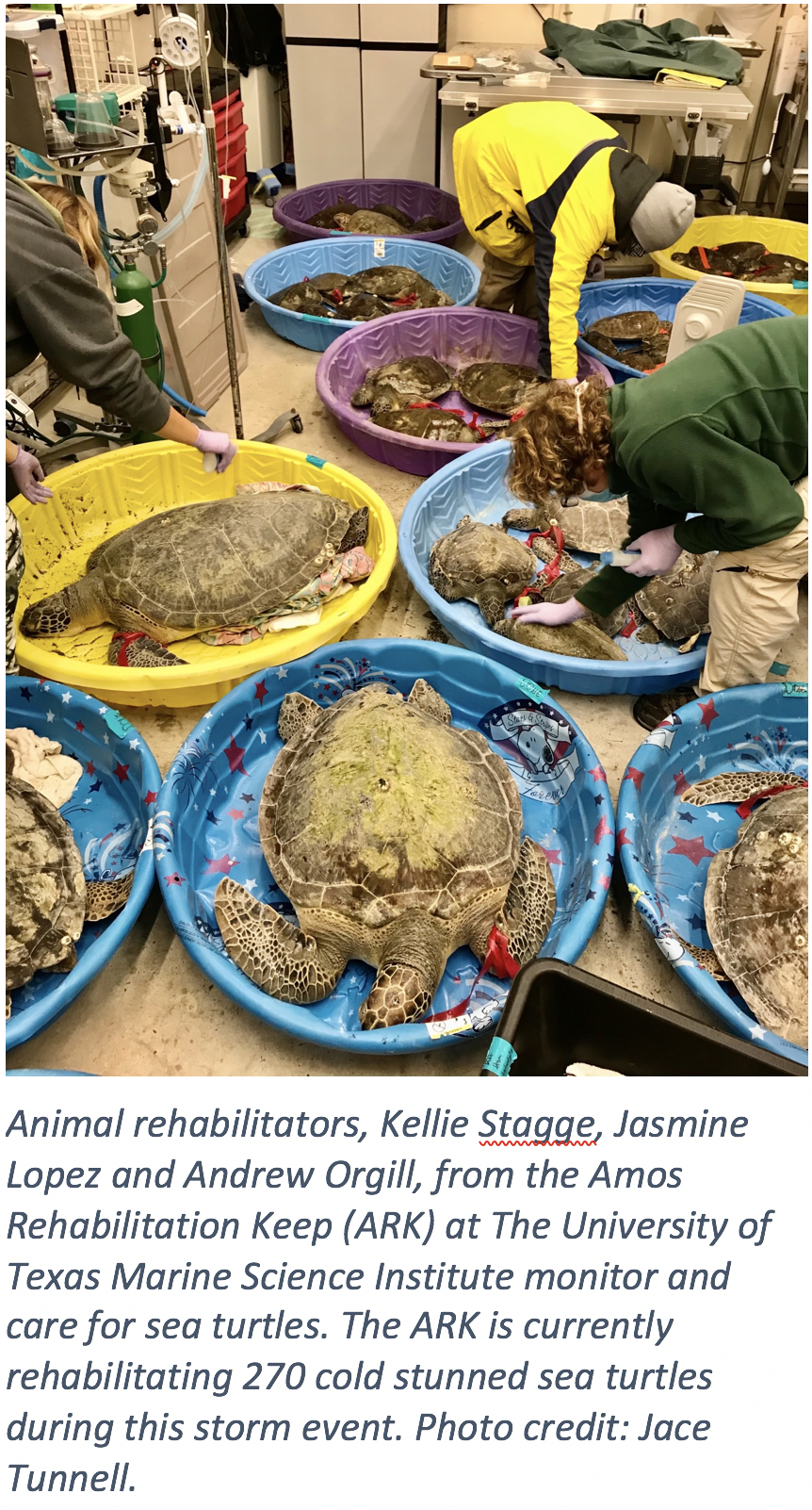 The severe winter weather caused power outages, road closures, water pressure issues. It is also having a dramatic impact on the local wildlife. The recent freezing temperatures are causing many sea turtles in the bays to become stunned by the cold. The Amos Rehabilitation Keep (ARK) at The University of Texas Marine Science Institute is currently rehabilitating 899, as of 10 p.m. 2/19/21, cold stunned sea turtles during this storm event. This freeze event is already more severe than the freeze in 2014, when the ARK rescued and rehabilitated over 800 sea turtles. The staff at the ARK has been working tirelessly to rescue sea turtles stunned during this event and in preparation made accommodations to stay in Port Aransas close to the ARK to reduce travel.
The severe winter weather caused power outages, road closures, water pressure issues. It is also having a dramatic impact on the local wildlife. The recent freezing temperatures are causing many sea turtles in the bays to become stunned by the cold. The Amos Rehabilitation Keep (ARK) at The University of Texas Marine Science Institute is currently rehabilitating 899, as of 10 p.m. 2/19/21, cold stunned sea turtles during this storm event. This freeze event is already more severe than the freeze in 2014, when the ARK rescued and rehabilitated over 800 sea turtles. The staff at the ARK has been working tirelessly to rescue sea turtles stunned during this event and in preparation made accommodations to stay in Port Aransas close to the ARK to reduce travel.
Sea turtles are cold‐blooded reptiles and require warm temperature to stay alive. When the water dips below 50 degrees Fahrenheit, turtles start to get in trouble and can have decreased heart rate and circulation, and they exhibit lethargy followed by shock, pneumonia and possible death. Water temperature that reaches 50 degrees Fahrenheit are almost always fatal. As of Monday, at noon, the surface water temperature in the East Copano Bay was 39.7 degrees Fahrenheit. Sea turtles can migrate down to deeper and warmer waters in shipping channels and waterways to stay warm, but those in the shallower bays and estuaries are at greater risk of cold stun and death.
The Gulf of Mexico water has been getting warmer over the years, which is usually good news for sea turtles because they don’t have to migrate and can stay here year‐round to feed on abundant algae and invertebrates found on the Packery and Port Aransas jetties. This however is a double‐edged sword; turtles can also be trapped when the temperature drops, leaving them stunned by the cold and risking death.
The ARK along with the Padre Island NS Division of Sea Turtle Science & Recovery, Texas Parks and Wildlife Department, SeaWorld, Texas State Aquarium, Texas Sealife Center, Mission-Aransas Reserve, and the hundreds of volunteers braving the cold weather have been essential in saving many of these endangered sea turtles. The turtles are taking up all the available space that there is to offer with several turtles per holding tub. We have now moved incoming turtles to the auditorium. The ARK will house and rehabilitate these turtles until the water temperatures rise to 55 degrees Fahrenheit and are able to be released back to the Gulf of Mexico.
We wish to extend a sincere thank you to all of the volunteers and our partners who have helped collect and transport sea turtles during the freezing and difficult conditions.